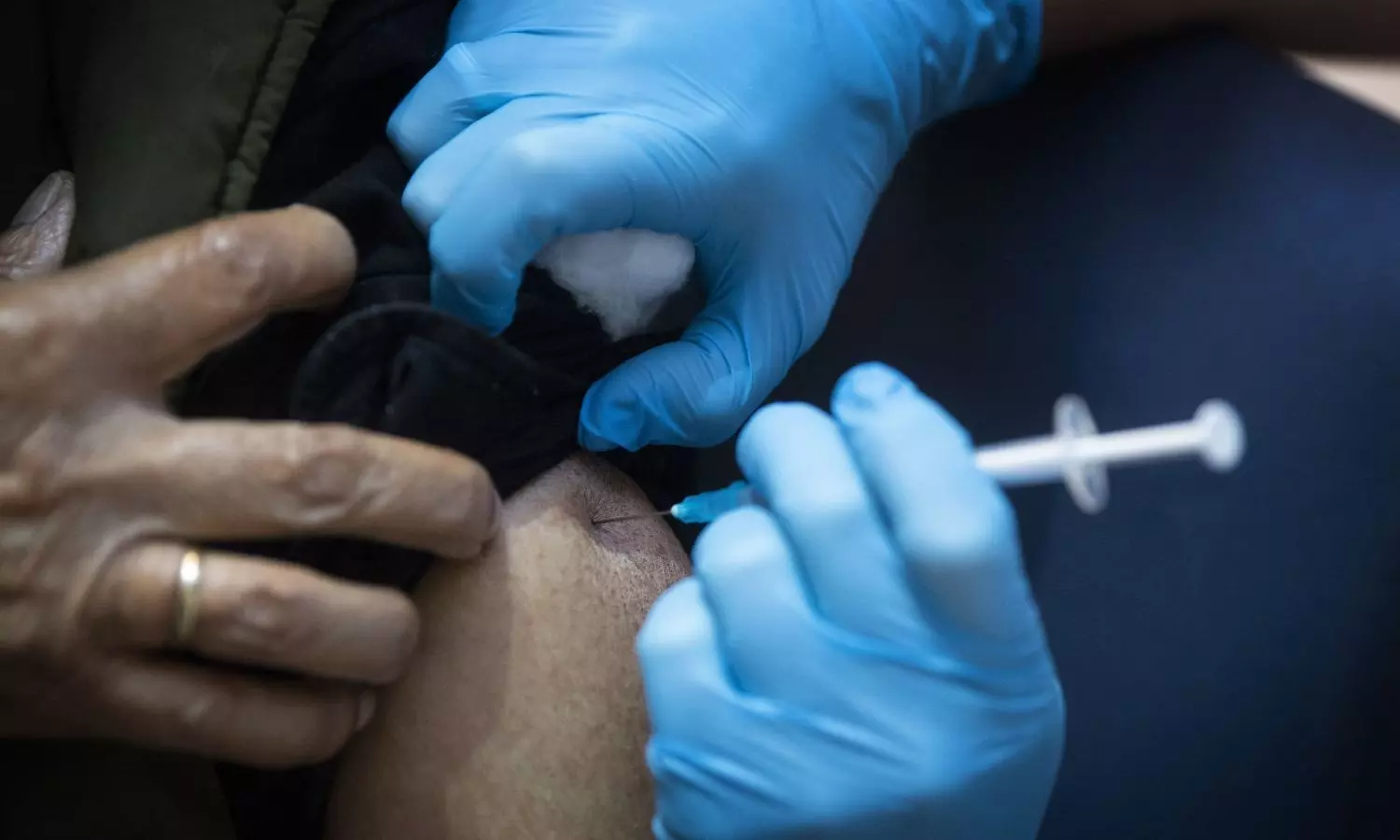No increased risk of stroke in older adults who received COVID-19 bivalent vaccine: JAMA

USA: In a self-controlled case series of 11,000 Medicare beneficiaries age 65 or older, the primary analysis showed no evidence of a significantly increased risk of stroke during the days immediately following the administration of either brand of the COVID-19 bivalent vaccine.
“In the Medicare beneficiaries who experienced stroke following the administration of either brand of the COVID-19 bivalent vaccine, the stroke risk was not significantly increased during the 1- to 21-day or 22- to 42-day risk window after vaccination compared with the 43- to 90-day control window,” the researchers reported. The findings were published online in the Journal of the American Medical Association (JAMA) on March 19, 2024.
In January 2023, the US Food and Drug Administration and the US Centers for Disease Control and Prevention raised a safety concern for ischemic stroke among adults aged 65 years or above who received the Pfizer-BioNTech BNT162b2; WT/OMI BA.4/BA.5 COVID-19 bivalent vaccine.
Against the above background, Yun Lu, Center for Biologics Evaluation and Research, US Food and Drug Administration, Silver Spring, Maryland, and colleagues aimed to evaluate stroke risk after administering(1) either brand of the COVID-19 bivalent vaccine, (2) either brand of the COVID-19 bivalent plus a high-dose or adjuvanted influenza vaccine on the same day (concomitant administration) and (3) a high-dose or adjuvanted influenza vaccine.
For this purpose, the researchers conducted a self-controlled series including 11 001 Medicare beneficiaries aged 65 years or older who experienced stroke after receiving either brand of the COVID-19 bivalent vaccine (among 5 397 278 vaccinated individuals). The study period was 2022 through 2023.
The main outcomes were stroke risk (transient ischemic attack, non-hemorrhagic stroke, combined outcome of transient ischemic attack or non-hemorrhagic stroke, or hemorrhagic stroke) during the 1- to 21-day or 22- to 42-day risk window following vaccination versus the 43- to 90-day control window.
The researchers reported the following findings:
- 5 397 278 Medicare beneficiaries received either brand of the COVID-19 bivalent vaccine (median age, 74 years; 56% were women).
- Among the 11 001 beneficiaries who experienced a stroke after receiving either brand of the COVID-19 bivalent vaccine, there were no statistically significant associations between either brand of the COVID-19 bivalent vaccine and the outcomes of transient ischemic attack, non-hemorrhagic stroke, non-hemorrhagic stroke or transient ischemic attack, or hemorrhagic stroke during the 1- to 21-day or 22- to 42-day risk window vs the 43- to 90-day control window.
- Among the 4596 beneficiaries who experienced a stroke after concomitant administration of either brand of the COVID-19 bivalent vaccine plus a high-dose or adjuvanted influenza vaccine, there was a statistically significant association between vaccination and non-hemorrhagic stroke during the 22- to 42-day risk window for the fizer-BioNTech BNT162b2; WT/OMI BA.4/BA.5 COVID-19 bivalent vaccine and a statistically significant association between vaccination and transient ischemic attack during the 1- to 21-day risk window for the Moderna mRNA-1273.222 COVID-19 bivalent vaccine.
- Among the 21 345 beneficiaries who experienced stroke after administration of a high-dose or adjuvanted influenza vaccine, there was a statistically significant association between vaccination and non-hemorrhagic stroke during the 22- to 42-day risk window.
In conclusion, there was no evidence of a significantly increased risk for stroke during the days immediately after vaccination among Medicare beneficiaries aged 65 years or older who experienced stroke after receiving either brand of the COVID-19 bivalent vaccine.
Reference:
Lu Y, Matuska K, Nadimpalli G, et al. Stroke Risk After COVID-19 Bivalent Vaccination Among US Older Adults. JAMA. 2024;331(11):938–950. doi:10.1001/jama.2024.1059



